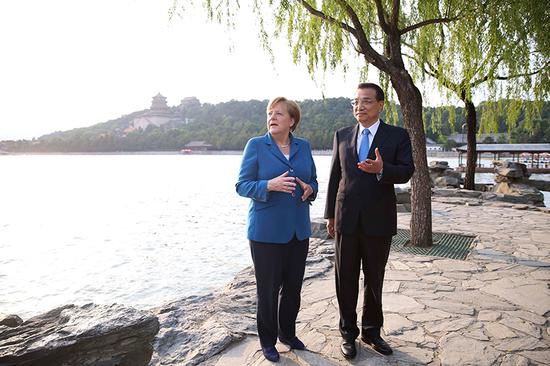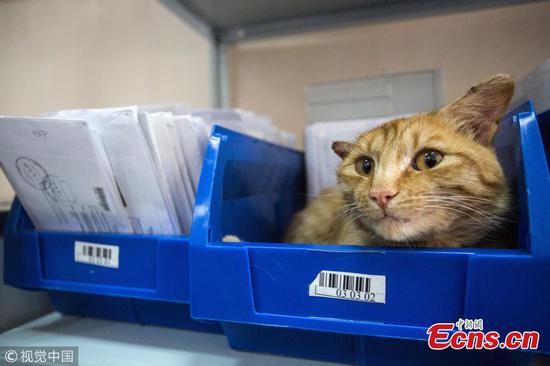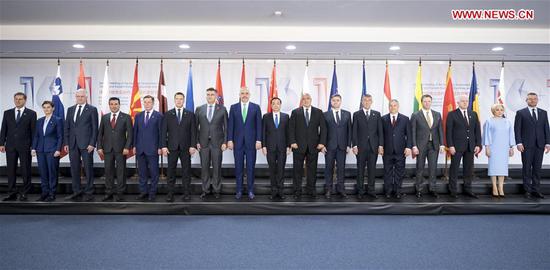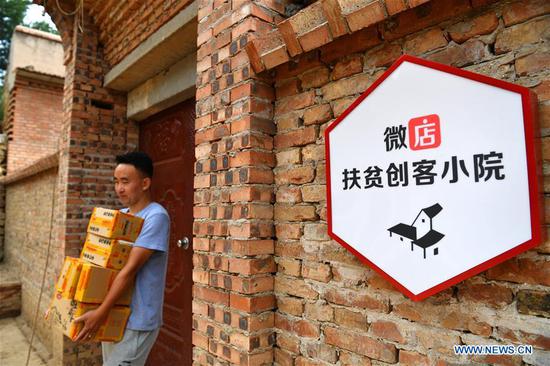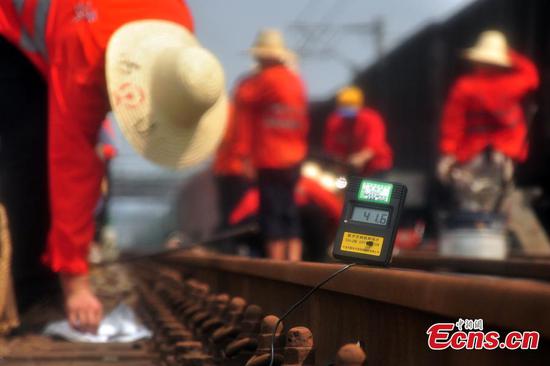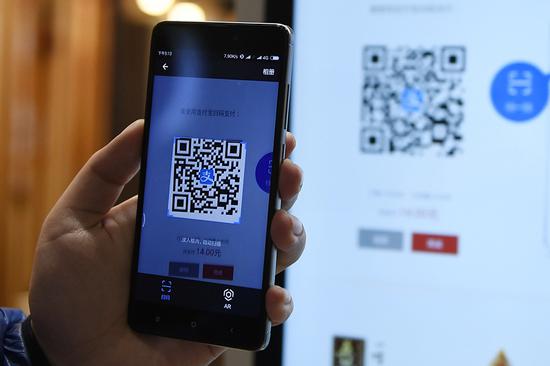
A consumer pays with Alipay after ordering food at the first self-service restaurant in Hangzhou, Zhejiang Province. (Photo/Xinhua)
China's third-party payment providers now face stricter rules requiring them to be connected to a central clearing house for settlement, part of Beijing's broader oversight of the burgeoning market as it upholds financial security.
From July 1, all payment transactions handled by third-party providers need to go through the Online Settlement Platform for Non-Bank Payment Institutions, enabling better regulation and tracking of capital flows within the country.
Under the new rule, Alipay, Tenpay, and a long list of third-party players comprising China's 40 trillion-yuan ($6 trillion) third-party payment market in the quarter ended March have routed their transactions through the new online clearing house.
The channel links with the central bank's clearing system to facilitate transactions between consumers and merchants. Before this, companies were linked directly to banks.
Through the mechanism, the People's Bank of China, the central bank, is able to track and monitor all capital flows from third-party payment vendors, potentially preventing misconduct such as money laundering, tax evasion and bribery, said Neil Wang, China president of consultancy Frost & Sullivan.
"It's conducive in the long term to third-party payment institutions, where the clearing house has a role to play in setting unified standards in information sharing, risk supervision and customer deposits management," said Xiang Songzuo, vice-director of the International Monetary Institute at Renmin University of China.
The Online Settlement Platform for Non-Bank Payment Institutions, the clearing house, is owned by a number of major institutions. Seven units under the auspices of the central bank have a 37 percent stake while Alibaba affiliate Ant Financial and Tencent Holdings Ltd's Tenpay each own 9.6 percent. The remaining shares are owned by 36 smaller online players, including UnionPay.
Alipay said it has always been "actively and orderly" pushing ahead with connections to the clearing house, according to a company statement from its parent Ant Financial Services Group. Such connections would not affect customer experience, it added.
Other payment firms such as Tenpay and China PnR, also said they are carefully following the central bank's rules, without elaborating.
China is one of the world's most dynamic third-party payment markets, largely fueled by the vast e-commerce sector and the proliferation of mobile gadgets. The market is highly polarized, with Alipay and Tenpay accounting for more than 90 percent, according to data from consultancy iResearch.
While all seem to applaud the move, the new arrangement could be more heartening for smaller players compared with the big two, said Wu Qing, a researcher at the Development Research Center of the State Council.
"The threshold for entering the payment market is significantly lowered thanks to this unified agent. Payment firms now don't need to connect to a wide array of banks and sign respective contracts with them," Wu said.
Wang echoed such sentiments, saying that smaller players can better survive the fierce competition since they previously lacked enough resources and capital to bargain and connect directly with banks.
Under the new rules, "all third-party payment firms are now placed on a level playing field", said Li Chao, a fintech analyst at iResearch.















